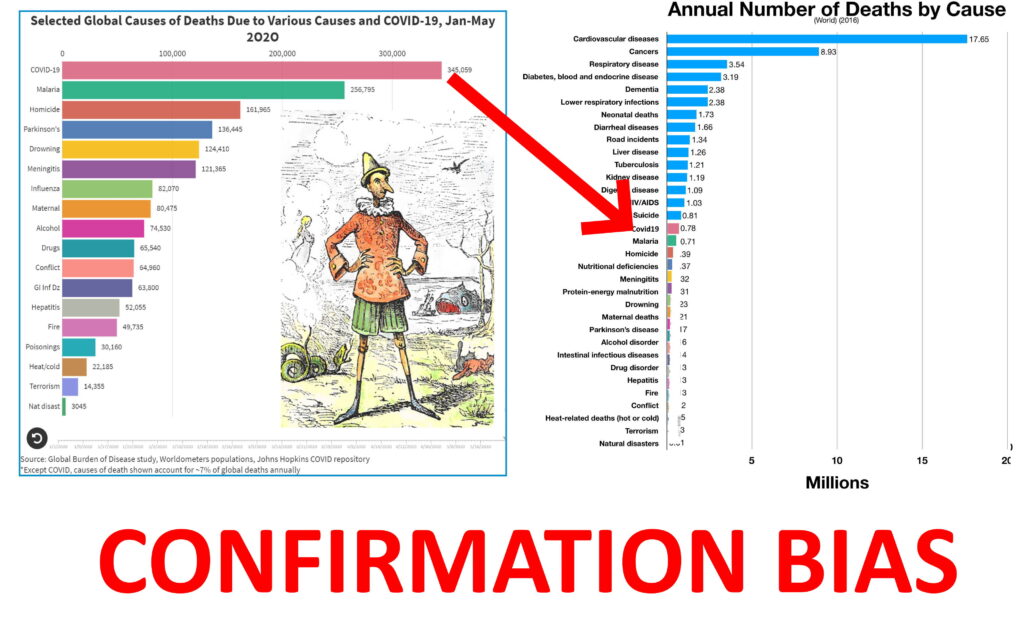“Confirmation bias is the tendency to search for, interpret, favor, and recall information that confirms or support one’s prior personal beliefs or values.[1] It is an important type of cognitive bias that has a significant effect on the proper functioning of society by distorting evidence-based decision-making. For example, a person may cherry-pick empirical data that supports one’s belief, ignoring the remainder of the data that is not supportive. People also tend to interpret ambiguous evidence as supporting their existing position. The effect is strongest for desired outcomes, for emotionally charged issues, and for deeply entrenched beliefs.”
All the above matches perfectly with the reaction to Covid19 that has led many distinguished scholars to forget everything they have learned in their career and present only data that confirm their worst fear about the pandemic. This has led to embracing disastrous policies. It is not by chance that successful scholars are often the main victims of such an attitude:
“Confirmation biases contribute to overconfidence in personal beliefs and can maintain or strengthen beliefs in the face of contrary evidence. Poor decisions due to these biases have been found in political, organizational, financial and scientific contexts.”
A perfect example is this graph that presents in the most misleading way the mortality rate of Covid19 as though it was the biggest cause of death in the world, while it is first of a sample including only the last 15 causes of death (overall corresponding to 7% of mortality rate). The real graph is the one on the right. As you can see there is a radical difference betweem the cherry picked sample on the left and the actual graph on the left.

The graph on the left is not literally false, of course. It’s a kind of smart lie. It induces the reader to have an impression different from the reality. Only if you read the caption in small characters at the bottom you may understand that the graph is built as to give Covid19 a sproportionate importance. So, in many ways, it is even worse than a blatant lie.
It’s a lie for people who want to be lied to.

